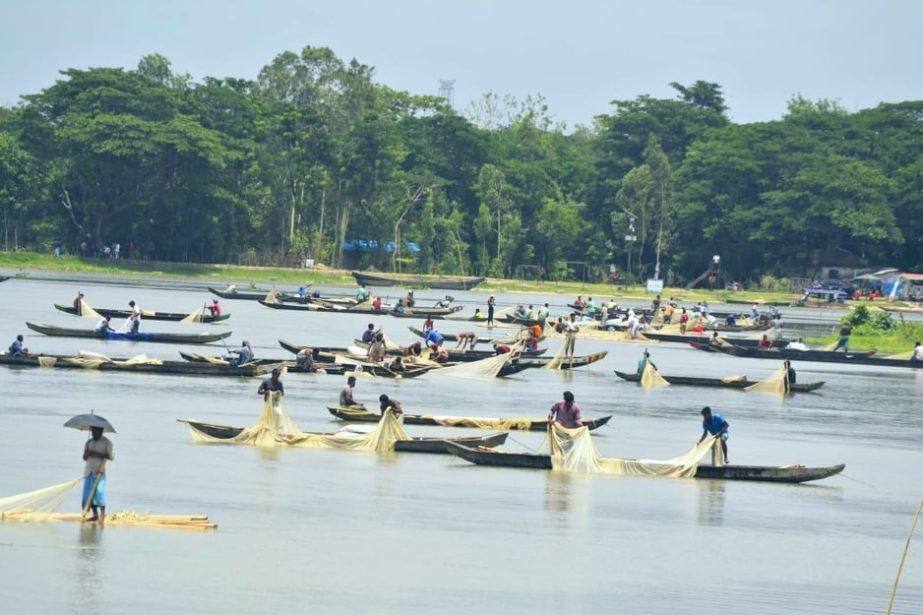
UNB, Chattogram :
Monday was not a lucky day for Shafiul Alam, a middle-aged egg collector from the Madarsa area of Chattogram.
After toiling hard from dawn to dusk, he kept on staring at the Halda river till late in the evening.
He was unable to reconcile with the fact that his catch in the Halda river — the sole breeding ground for natural carp in this country — did not match his expectations.
Shafiul was not alone. Hundreds of egg collectors like him, who eke out a living by selling their catch, returned disappointed, attributing their “bad luck” to lack of rains and flash floods in the region this year.
“Monday turned out to be a big disappointment for us. Full moon, high tide nothing helped, as our egg collection was not what we had expected,” another fisherman told UNB in a choked voice.
The Halda river is the only natural fish breeding ground in Bangladesh, where the carp species release eggs from April to June almost every year for time immemorial.

The collected eggs are hatched in the artificial mud-made scoop on the riverbank to produce carp fries for supply to different regions of the country.
“Hopefully mother fishes will lay more eggs during the next full moon night,” Shafiul said.
Experts also said that the collectors might need to wait a bit longer for full-scale egg release in the Halda river this year — “till the showers trigger flash floods”.
The river is a very favorable breeding ground for Ruhi, Mrigel, Katol and Kalbaush species to lay eggs, according to experts.
“This year, the eggs that have been collected are actually ‘sample eggs’ released by mother fish. The fertilised fishes are yet to get a favorable environment for full-scale egg release as there was not enough rains. “At present, the water quality of the river is up to the mark. No salinity is there. So, the river water is suitable for laying eggs. We will just need to wait for rains now,” said Chattogram Cantonment Public College teacher Md Shafiqul Islam.
“If the conditions remain favorable, the mother species may release eggs again between May 28 and 31 and June 3-13,” said the expert, who accompanied the egg collectors on Monday.

